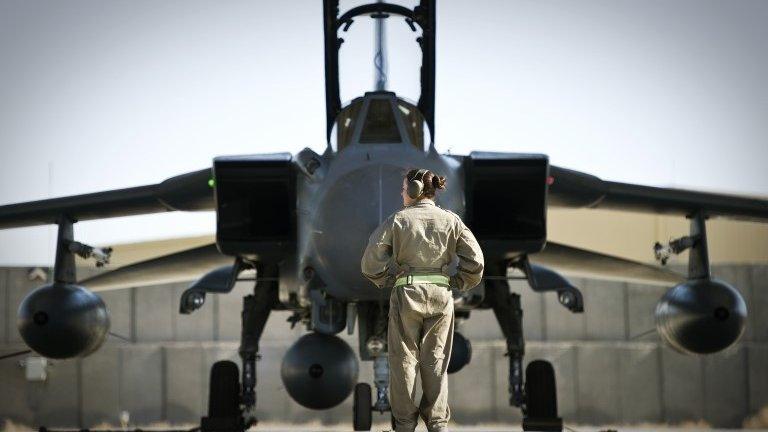Nato force commitment extended, says defence secretary
- Published
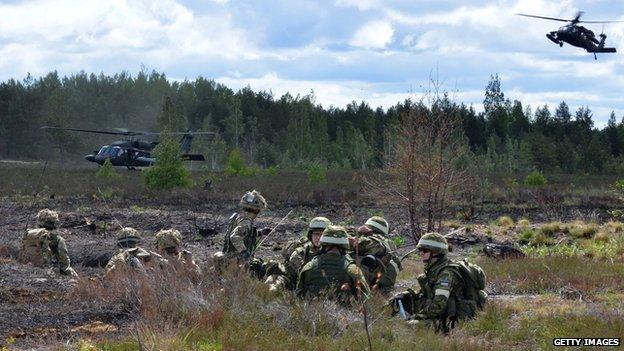
British soldiers took part in a Nato military exercise in Latvia this month
The UK commitment to a rapid reaction force being set up by Nato is to be extended by three years, Defence Secretary Michael Fallon has said.
Mr Fallon told the BBC's Andrew Marr show 1,000 troops would be sent next year and 3,000 in 2017, chiefly in response to the threat posed by Russia.
He accused Vladimir Putin of "sabre-rattling" and said it was important for the UK to commit to Nato's mission.
Tory backbenchers and US officials have expressed concerns at UK defence cuts.
On President Putin, Mr Fallon told the BBC: "He's clearly building up his conventional forces, he's modernising his nuclear weapons.
"So it is sabre rattling and that's why we have to continue to strengthen Nato, offer Nato more reassurance through these larger scale exercises.
"We're doing our bit, but it's very important we send Putin this message that we are determined in our commitment to the collective defence of Nato."
'Very strong commitments'
After 1,000 troops are sent next year and 3,000 the year after, a battle group will be committed in each year after that until 2021, Mr Fallon said.
In addition to this, he said UK Typhoons currently flying over the Baltic would be sent back next year.
Michael Fallon says Nato must send a message to Russian President Vladimir Putin
A demand from the chancellor for a further £500m in Ministry of Defence cuts has fuelled worries that the UK may drop below Nato's target of spending 2% of GDP on defence.
When pressed on whether the UK would continue to meet that target, Mr Fallon said: "We can't set the budget on this programme, we set the budget in September, then you'll have your answer.
"But we already have three very strong commitments in our manifesto to go on increasing spend on equipment, to go on replacing the four ballistic submarines, and not to cut the Army further.
"There is your commitment."
BBC News political correspondent Chris Mason said the defence secretary was attempting to strike back against critics, but would know the pressure to do more for less was not likely to go away.
Writing in the Sunday Telegraph, external, Mr Fallon said the Nato boost showed ministers were determined to do "whatever it takes" to keep the country safe.
He pointed out the UK defence budget at £34bn a year was the fifth biggest in the world.
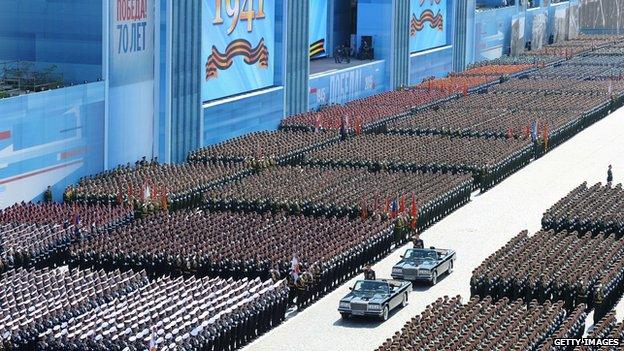
Russia has increased its defence spending substantially under Vladimir Putin
He also highlighted the UK's involvement in tackling Islamic State militants in Syria and Iraq, training it has undertaken in Afghanistan and Ukraine, and its aid efforts in Sierra Leone and Nepal.
"No country in Europe is playing such a strong global role," he said.
"This step-up in our international defence effort is needed because the world is becoming a darker place."
Mr Fallon added that "those who belittle our armed forces' efforts fail to recognise that our national security depends on tackling the causes of instability, not just treating the symptoms".
This included using "soft power," such as diplomacy and engagement, to help weaker countries build stronger institutions and law enforcement, and to promote women's rights, he said.
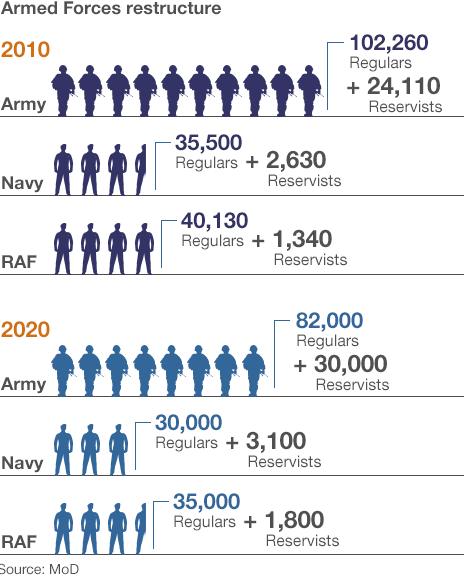
The British Army is already undergoing a 20% reduction in regular troop numbers, from 102,000 in 2010 to 82,000 in 2020.
This is to be accompanied by a rise in the number of reservists, from 24,000 to 30,000.
The Royal Navy and the RAF are both preparing to lose 5,000 regulars and gain 500 reservists over the same period.
In March, the US Army's most senior general spoke publicly about his fears of a shrinking British commitment to defence.
And when US President Obama discussed the UK's defence budget with David Cameron this month, he pressed him to enable Britain to meet the Nato target.
Mr Fallon said the 2015 Strategic Defence and Security Review would examine the threats the UK faced "and the capabilities we need to tackle them".
- Published21 June 2015
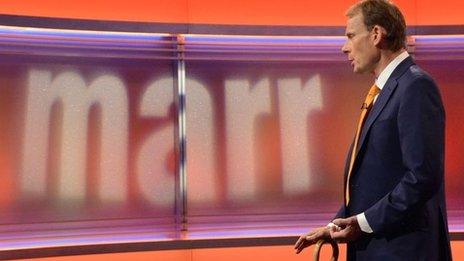
- Published8 June 2015
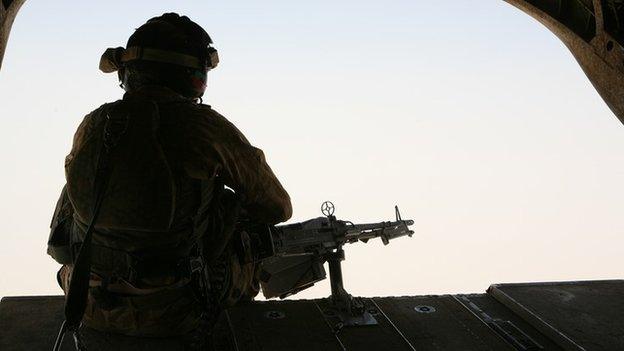
- Published7 June 2015
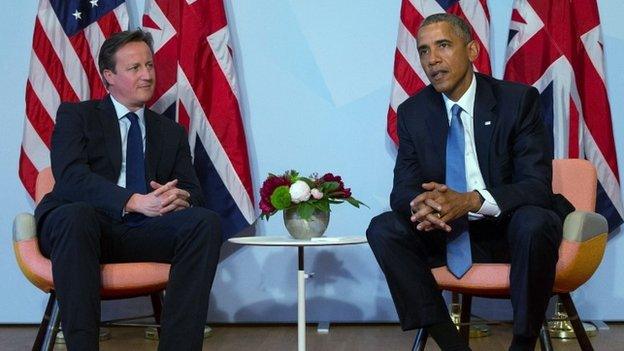
- Published9 March 2015
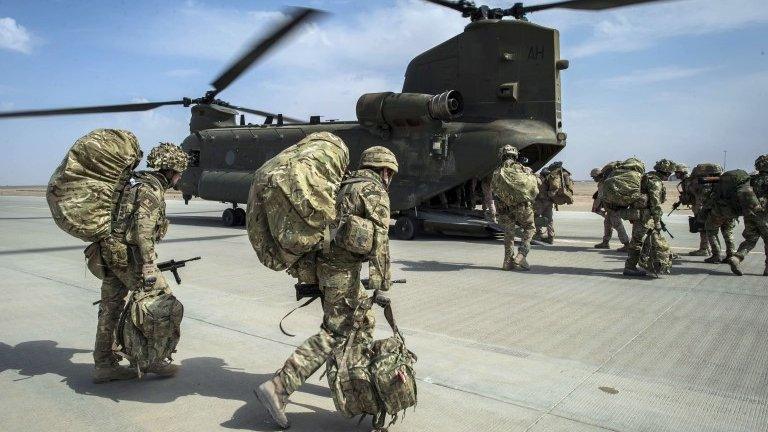
- Published2 March 2015
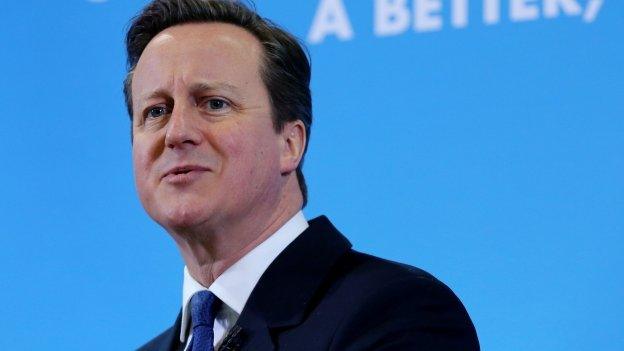
- Published2 March 2015
